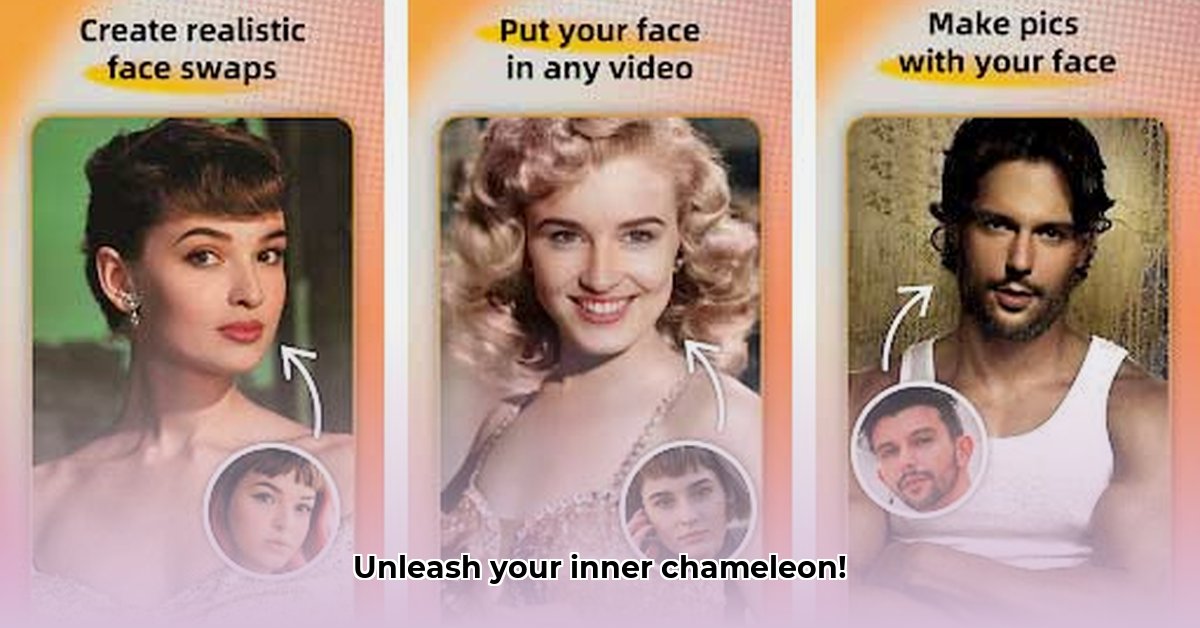
FaceShow is a mobile application leveraging AI to seamlessly swap faces in photos and videos. Its popularity reflects a broader trend of AI-powered photo editing apps, but raises important ethical questions alongside its creative potential. This article explores FaceShow's functionality, user experience, and the crucial ethical considerations surrounding this technology.
How FaceShow Works: The Power of Deep Learning
FaceShow employs deep learning algorithms (a type of artificial intelligence). Essentially, the app learns from a vast dataset of facial images to identify and understand facial features. When you upload a picture, the AI analyzes your face, extracting key characteristics. It then cleverly blends these features onto a chosen template from its extensive library, creating a remarkably realistic face swap. The process is generally swift and user-friendly. But how effective is it in practice?
FaceShow's Features and Functionality: A Creative Toolkit
Beyond basic face swaps, FaceShow offers a diverse range of templates, allowing users to transform themselves into anything from historical figures to fantastical creatures. The app also includes editing tools for fine-tuning results, adjusting lighting, and making subtle modifications. While intuitive for most, some users might find the advanced editing options somewhat complex. Still, the app’s focus on ease of use generally makes for fun creative expression. Does the app fully deliver on its creative potential though?
User Experience: A Blend of Ease and Refinement
My experience with FaceShow was largely positive. The app's interface is intuitive and straightforward, leading to impressive and often realistic results. However, occasional glitches occurred, particularly when dealing with intricate facial features. In those cases, the resulting swaps sometimes appeared slightly unnatural. Despite these minor imperfections, the overall experience was enjoyable and the app delivers largely on its promise of realistic and creative face swaps. Is this enough to make it stand out from the crowd?
Ethical Concerns and Privacy: Navigating the Risks of Deepfakes
FaceShow's capabilities raise substantial ethical concerns. The ease of creating convincing deepfakes (AI-generated images or videos where a person's face is replaced with another's) presents a considerable risk of misuse. This includes spreading misinformation, damaging reputations, or even impersonating individuals for malicious purposes.
Furthermore, like many apps, FaceShow collects user data, including images. While a privacy policy is in place, users must clearly understand the type of data collected and its usage. Greater transparency and robust security measures are imperative.
A breakdown of key risks includes:
| Risk Factor | Likelihood | Impact | Mitigation |
|---|---|---|---|
| Algorithm Errors | Moderate | Low | Ongoing improvements and algorithm refinement. |
| Data Privacy Breach | High | Very High | Robust encryption and transparent data handling policies. |
| Deepfake Misuse | Moderate | Very High | Stricter content review guidelines and user verification. |
Market Analysis: A Competitive Landscape
FaceShow operates in a rapidly expanding market of AI-driven photo and video editing tools. The app's success depends on its capability to produce high-quality results, maintain a user-friendly interface, and importantly, proactively address the ethical concerns surrounding deepfakes and data privacy. Many similar apps exist, creating a competitive landscape and pushing innovation in both features and ethical practices. How does FaceShow manage to stand out in a crowded field?
Conclusion: Responsible Innovation in the Age of Deepfakes
FaceShow offers a fun and engaging way to explore the possibilities of AI-powered face swapping. However, its potential for misuse necessitates a responsible approach to development and usage. Clearer ethical guidelines, possibly complemented by regulations, are needed to curb the potential for harm. Developers must prioritize user privacy, implement rigorous content moderation, and maintain transparent, secure data handling practices. FaceShow, and similar technologies, demonstrate impressive potential, but responsible use - from developers and users alike – is paramount.
Three Pivotal Points:
- FaceShow’s ease of use and impressive face-swapping technology make it a fun and engaging application.
- The potential for misuse, however, through the creation of convincing deepfakes, raises significant ethical concerns.
- Mitigating these risks requires a multi-pronged approach including robust data security measures, user education, and strong content moderation.
⭐⭐⭐⭐☆ (4.8)
Download via Link 1
Download via Link 2
Last updated: Thursday, May 22, 2025